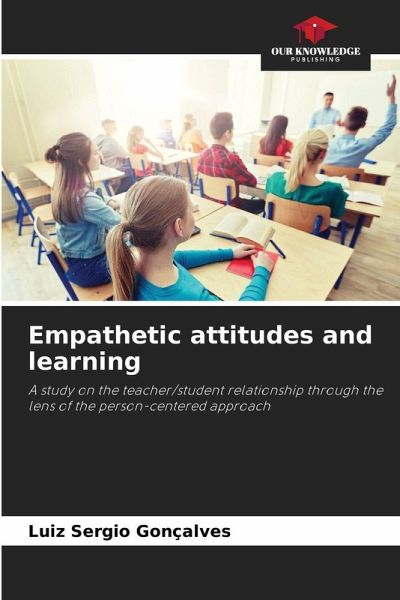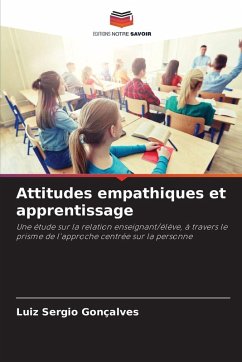
Empathetic attitudes and learning
A study on the teacher/student relationship through the lens of the person-centered approach
Versandkostenfrei!
Versandfertig in 6-10 Tagen
51,99 €
inkl. MwSt.

PAYBACK Punkte
26 °P sammeln!
My daily work as a psychologist, mainly in a juvenile court in a very poor municipality in the Baixada Fluminense region of the state of Rio de Janeiro, has confronted me with a challenging reality. One of my duties was to study and facilitate the inclusion of children and adolescents in the school system, considering that school failure and dropout rates are very high. But how could I work towards school inclusion, in the fullest sense of the term, involving regular attendance and real learning, if the reports I heard from these children and adolescents described a school that was, for the mo...
My daily work as a psychologist, mainly in a juvenile court in a very poor municipality in the Baixada Fluminense region of the state of Rio de Janeiro, has confronted me with a challenging reality. One of my duties was to study and facilitate the inclusion of children and adolescents in the school system, considering that school failure and dropout rates are very high. But how could I work towards school inclusion, in the fullest sense of the term, involving regular attendance and real learning, if the reports I heard from these children and adolescents described a school that was, for the most part, uninteresting and unmotivating for learning? This question led me to develop a master's degree research project in the field of education at the Federal University of Rio de Janeiro (UFRJ). My research question stemmed from the possibility of actions or attitudes on the part of teachers that could facilitate student learning and motivate them to learn and stay in school. From this question arose the hypothesis that empathetic attitudes, closeness, and inclusion in knowledge could constitute motivation.












